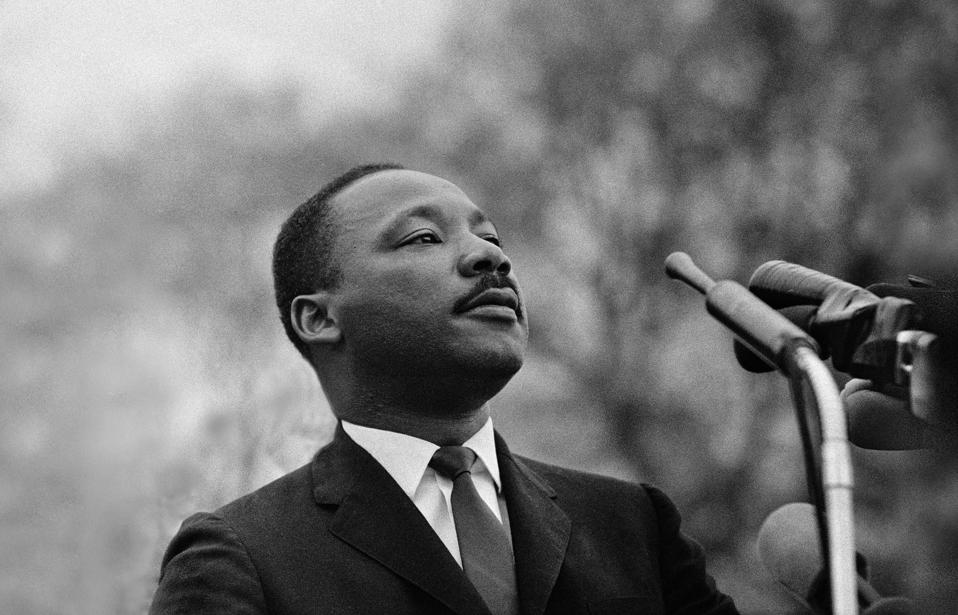Today marks the anniversary of the 1968 assassination of Martin Luther King, Jr. the great civil rights activist and public speaker. His famous speech at the March on Washington serves as a triple role model for any speaker because of its three Rs: rousing rhetoric, resounding call to action, and repetition—multiple statements of the phrase “I have a dream.” The latter technique dates back to the Ancient Greek orators who called it “anaphora.”
As you can read in this prior Forbes blog, the speech inspired President Barack Obama to use anaphora in his Second Inaugural Address: he repeated the first three words of the U.S. Constitution, “We, the people…” at the beginnings of four consecutive paragraphs.
In honor of King’s inspirational contributions, let’s examine another technique he used in two of his other famous speeches: a personal point of view. Readers of this blog will recognize this as a departure from our recurring theme—a relentless focus on the audience—but King made it effective because in each case, it demonstrated a forceful statement of his commitment to achieve his goals.
On the day before the assassination, King spoke at the Mason Temple in Memphis and concluded with these ironically prophetic words, “Well, I don’t know what will happen now. We’ve got some difficult days ahead. But it doesn’t matter with me now. Because I’ve been to the mountaintop. And I don’t mind. Like anybody, I would like to live a long life. Longevity has its place. But I’m not concerned about that now. I just want to do God’s will. And He’s allowed me to go up to the mountain. And I’ve looked over. And I’ve seen the promised land.”
Four years earlier, King was awarded the Nobel Peace Prize. In his acceptance speech he said, “I have the audacity to believe that peoples everywhere can have three meals a day for their bodies, education and culture for their minds, and dignity, equality and freedom for their spirits.” And then he concluded, “I still believe that we shall overcome.”
King was following in the footsteps of one of the most famous Nobel Acceptance speeches of all time, that of William Faulker who said, “I decline to accept the end of man. It is easy enough to say that man is immortal simply because he will endure: that when the last dingdong of doom has clanged and faded from the last worthless rock hanging tideless in the last red and dying evening, that even then there will still be one more sound: that of his puny inexhaustible voice, still talking. I refuse to accept this. I believe that man will not merely endure: he will prevail.”
The takeaway for you: declare your commitment to achieving your goal:
- If your pitch is to seek financing, state what you will do to grow revenues and control costs.
- If your pitch is to sell a product or service, state how you stand by its functionality.
- If your pitch is a stretch goal for your team, state how you will participate along with them.
- If your pitch is to a potential partner, state what you will contribute to assure mutual success.
- If your pitch is to seek a donation to a worthy cause, state how you will follow it through.
But don’t forget the relentless focus on the audience. Always tell them what’s in it for them.

